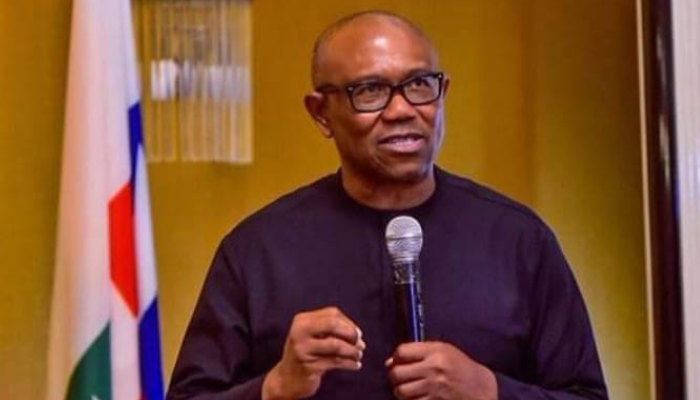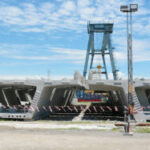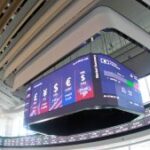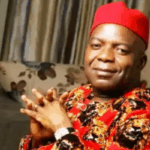Peter Obi, the Labor Party (LP) presidential candidate in the 2023 election, has called on the Federal Government to pay more attention to the development of port facilities outside Lagos State.
The call came after the Federal Government recently approved $1 billion (₦1.5 trillion) for the modernization of Apapa and Tin Can Island ports in Lagos.
Obi said the development once again highlighted “the long-term concentration of our port development in Lagos only”.
Writing on his
His remarks came amid similar appeals by Arewa community leaders who urged President Bola Tinubu to fulfill his promise to complete the Baro dry port in Niger State.
According to Obi, “Nigeria's infrastructure investment remains highly concentrated in Lagos, often at the expense of other strategic ports such as Warri, Port Harcourt, Calabar and Onne.”
He said that if fully developed, these ports can increase productivity, expand trade, create jobs and open new economic corridors that will lift millions of people out of poverty across the Union.
“Around the world, countries that have undertaken decentralized port development are reaping immense economic benefits,” he said.
He cited the case of Vietnam, which operates more than 300 ports – from Haiphong in the north to Da Nang in the center and Ho Chi Minh City in the south – ensuring nationwide connectivity. “Indonesia boasts about 111 commercial ports distributed across its territory to guarantee balanced access to trade,” he said.
According to him, South Africa also maintains eight major ports – from Durban and Richards Bay on the Indian Ocean to Cape Town and Saldanha Bay on the Atlantic – reflecting its vision of maritime inclusion.
“Egypt operates approximately 15 commercial ports on both the Mediterranean and Red Sea coasts; Morocco has approximately 14 ports open to international trade, including Casablanca, Tangier Med and Agadir, distributed along its Atlantic and Mediterranean coasts; while Algeria operates approximately 10 commercial ports spread across its extensive Mediterranean coast.
“Even Ghana, with only two major ports – Tema and Takoradi – has ensured that they are geographically decentralized at opposite ends of its coastline.
“These countries have understood a simple truth: no country maximizes its blue economy by concentrating all maritime activities in a single city. Decentralization reduces congestion, improves logistics, enhances national security and promotes balanced economic growth.”
Also read: Rift in Labor Party deepens, shadow over Obi's 2027 prospects
In the case of Nigeria, Obi said more than 70 percent of port activities are still concentrated in Lagos, burdening the city with chronic congestion, high demurrage costs, environmental degradation and delays that discourage investors and drive up the cost of goods across the country.
“Therefore, developing other ports is not only an infrastructural need but a national imperative. Revitalizing Warri, Port Harcourt, Calabar and Onne will reduce congestion in Lagos, reduce shipping costs, attract investment, create employment and boost regional economies.
He said, “As someone who understands the critical relationship between infrastructure, trade and national development, I believe a true national blue economy must span every sector. Beyond physical infrastructure, the reform must also address corruption.”
He said such initiatives will help reduce bureaucracy and drive adoption of technology to create a seamless, paperless port system that enhances turnaround time and global competitiveness. If managed judiciously, the Lagos Modernization Project could become a model for broader sea change – a reference point from which similar development spreads across the country.
“Now more than ever, Nigeria must rebuild our nation guided by fairness, equity, integrity and a clear vision to transform from consumption to production and shared prosperity,” Obi said.











